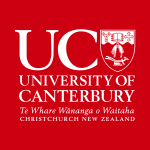About Master Of Engineering Studies In Renewable Energy in University of Canterbury
The Master of Engineering Studies caters for professional engineers seeking advanced technical training and is a taught master's degree with no thesis requirement. The MEngSt comprises a combination of 400 and 600-level courses that enables candidates to study a broad range of topics in their general area of expertise.
Renewable Energy is transforming the world from reliance on fossil fuels to sustainable energy systems. Researchers at UC are involved in sustainable energy projects in Pacific Island nations and in South East Asia as well as New Zealand-based work like transitioning the Burnham Army Camp to more sustainable energy sources.
Renewable Energy is a multidisciplinary subject with relevant courses taught by all departments within the College of Engineering but the programme is based in Civil and Natural Resources Engineering.
Students will learn about the variety of renewable energy resources and conversion technologies, system modelling techniques, challenges to sustainability and practical solutions to common issues. Our postgraduate qualifications are excellent pathways to careers in the growing renewable and sustainable energy sector.
How do I plan my degree?
The MEngSt is made up of 120 points:
- Students doing an endorsement will complete 75 points of courses at 600-level in their relevant endorsement listed within Schedule B to the Master of Engineering, and the remaining 45 points of courses are selected from within Schedule B or Schedule C to the Master of Engineering.
Further study
UC offers the Doctor of Philosophy (PhD) qualification in a number of Engineering disciplines including Civil Engineering, Earthquake Engineering, Fire Engineering, Transportation Engineering and Mechanical Engineering.
Career opportunities
Postgraduate study can bring many career benefits eg, specialist skills and enhanced knowledge, entry into specific occupations, higher starting salary/progression rates, research capability/achievement and evidence of high academic attainment/self-discipline.
Bachelors: No specific cutoff mentioned
- Applicants must hold a Bachelor of Engineering with first or second class honours degree or equivalent or from graduates with a Bachelor of Science with Honours or equivalent with an appropriate Physics and Chemistry background
English language requirements for postgraduate qualifications
If you want to study towards a postgraduate qualification, eg a Postgraduate Diploma, Masters, or PhD you must have one of the following:
ENGLISH TEST
- IELTS -Academic An average score of 6.5, with a minimum of 6.0 in reading, writing, listening and speaking
- TOEFL iBT -Total minimum score of 90, minimum score of 19 in reading, writing and listening. Please note UC only accepts TOEFL iBT scores from a single test date, not MyBest scores.
- TOEFL PBT - With a minimum score of 575 and TWE with a minimum score of 4.5
- CCEL EAP- Level 2 with a minimum B+ grade
- CAE or CPE- Score of 176 with a minimum of 169 in reading, writing, listening and speaking
- Pearson Test of English (Academic)- PTE with an overall score of 58 and no PTE communicative skills score below 50
- NZCEL- Level 5
University of Canterbury Highlights
| University Type |
Public University |
| Campus Setting |
Urban |
| Establishment Year |
1873 |
| No. of Campuses |
1 main campus |
| No. of Residence Halls |
10 |
| Graduate Job Rate |
89.9% (full time) |
| Research Funding |
Above 600,000 NZD pa |
| Cost of Attendance |
29,550 NZD pa |
| Applications Accepted |
Online |
| Work-Study |
Available |
| Intake Type |
Semester wise |
| Mode of Program |
Full time and online |
University of Canterbury Tuition fee
| Courses |
UG |
PG |
Doctorate |
| Arts |
25,500-30,200 |
29,000-33,800 |
6,749 |
| Business |
28,100 |
29,900 |
7,066 |
| Engineering |
42,000 |
42,000 |
8,130 |
| Science |
32,000 |
34,900-36,600 |
7,062–7,855 |
| Law |
30,200 |
33,800 |
7,066 |
New Zealand Living Expenses
You'll require between $20,000 and $25,000 a year ($380–480 per week) for housing/rent, food, transportation, phone bills, internet usage, and entertainment, in addition to your tuition and insurance fees. The average living expense will be the same for everyone, regardless of their tuition or course price. Please keep in mind that these are only suggestions; the Immigration New Zealand requirement is $15,000 per year including return travel or an additional $2,000.
| General expenses |
Cost
(in NZ dollars) |
| Rent (per month) |
$800–$950 |
| Groceries (per week) |
$100–$150 |
| Gym membership (per year) |
$300 |
| Entertainment (per week) |
$50 |
| Milk (per litre) |
$3 |
| Coca Cola (per can) |
$2 |
| Cup of Coffee |
$3–$5 |
| Lunch from University food hall or campus café |
$7–$12 |
| Local calls made from a cell-phone |
$0.50–$1.50 |
| Taxi - 5 km ride |
$10–$12 |
| Movie ticket |
$10–$14 |
| Visit to doctor |
$45–$85 |
